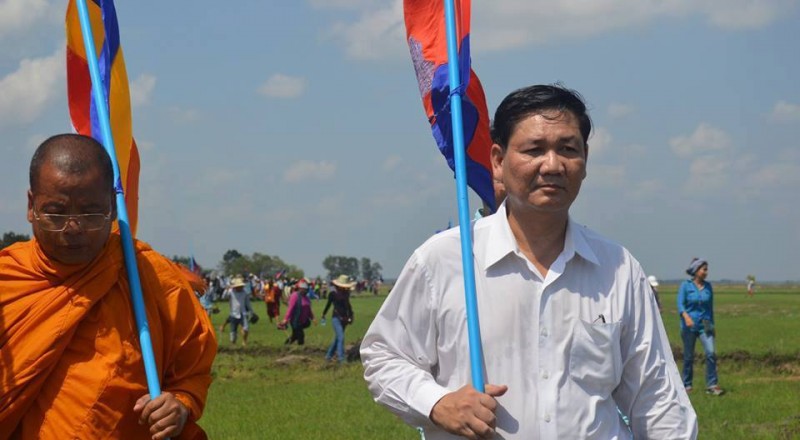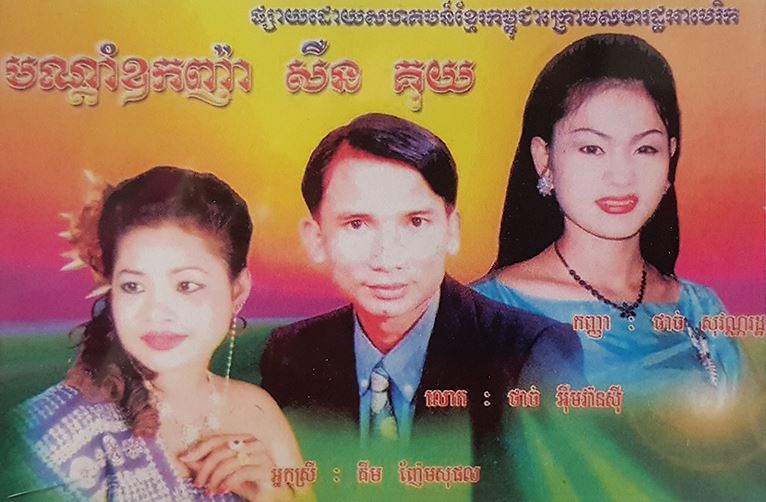សេចក្ដីថ្លែងការណ៍រួមរបស់អ្នកជំនាញសិទ្ធិមនុស្សនៃអង្គការសហប្រជាជាតិ
Joint Statement by UN human rights experts
ថ្ងៃសុក្រ ៤រោច ខែកត្ដិក ឆ្នាំកុរ ឯកស័ក ព.ស.២៥៦៣ ត្រូវនឹងថ្ងៃទី១៥ ខែវិច្ឆិកា គ.ស.២០១៩
Friday the 4th Waning Moon of Kattikā B.E.2563 equivalent to November 15, A.D.2019 Year of the Pig
 On the occasion of the 25th anniversary of the adoption of the Programme of Action of the International Conference on Population and Development (ICPD), commemorated in Nairobi from 12-14 November 2019, a group of United Nations human rights experts issued the following joint statement:
On the occasion of the 25th anniversary of the adoption of the Programme of Action of the International Conference on Population and Development (ICPD), commemorated in Nairobi from 12-14 November 2019, a group of United Nations human rights experts issued the following joint statement:
The 1994 ICPD Programme of Action set an ambitious agenda for development, anchored in the principles of human rights and gender equality. We celebrate the important progress which has been achieved. However, 25 years later, we are far from realizing the promise of the ICPD agenda.
A major achievement has been the notable reduction of maternal mortality. Between 2000 and 2017, the world’s maternal mortality rate dropped by some 38 percent. Yet still more than 800 women are dying daily from preventable causes related to pregnancy and childbirth, many of whom are girls. Human rights standards in relation to maternal mortality and morbidity have progressed significantly and there is greater appreciation that addressing maternal mortality and morbidity is not merely a biomedical issue, it entails addressing the full spectrum of women’s human rights throughout their lifecycles. Health systems interventions are required to ensure quality care, but also intersectoral action to address discriminatory laws and practices, pervasive gender-based violence against women, and overcome the obstacles to information and services women and girls face in particular.
Similarly, there has been progress on the repeal of laws criminalizing safe abortion services and an increased availability of modern forms of contraception. Recognizing the link between restrictive abortion laws and incidence of unsafe abortion, which threatens the lives and health of women and girls, international human rights mechanisms have consistently called for the decriminalization of termination of pregnancy, and for States to ensure that women and girls do not have to resort to unsafe abortion. Still 25 million unsafe abortions occur each year and some 214 million women around the world are deprived of access to essential modern contraception, often leading to unwanted pregnancies.
We wish to reiterate that much of the discrimination women face in terms of their right to access health services relating to their pregnancy and their resulting preventable ill-health, as well as maternal mortality and morbidity, can be attributed to the instrumentalization and politicization of women’s bodies and health. Criminalizing termination of pregnancy is one of the most damaging manifestations of that instrumentalization, subjecting women to risks to their lives or health and depriving them of autonomy in decision-making.
It is consistently those from marginalized groups who fare the worst when it comes to enjoyment of their sexual and reproductive health and rights, with clear disparities across all sexual and reproductive health indicators. At the core of human rights standards across these areas is special attention to people who are marginalized and most at risk of being left behind, including those who face discrimination based on age, disability, race, ethnicity, indigenous or minority status, migration status, health status, or sexual orientation and gender identity amongst many others. The violations they face are often multi-layered, intersectional and distinct, requiring explicit and dedicated attention. The humanitarian crisis of all kinds and the adoption of austerity measures by a number of Governments have had particularly detrimental impacts on women’s and girls’ sexual and reproductive health and rights.
When it comes to adolescent girls, the lack of universal access to comprehensive sexuality education and contraceptive information and services and the persistent practice of child marriage in many parts of the world continue to lead to teenage pregnancy and the exclusion of girls from education and employment, hence limiting their enjoyment of many other rights.
Since 1994, international human rights mechanisms, including special procedures mandates and treaty bodies, through their dialogues with States and country visits, their decisions on individual cases, and their thematic work, have contributed to a deepened understanding of issues central to the ICPD agenda. This robust body of work provides a solid foundation for delivering on the unfinished agenda of ICPD and for moving forward on the full enjoyment of women’s right to equality and non-discrimination in law, policy and in practice.
Human rights mechanisms have emphasized that the realization of sexual and reproductive health and rights is key for the realization of the 2030 Agenda for Sustainable Development to end poverty, ensure healthy lives for all and achieve gender equality and women’s empowerment. States should therefore redouble efforts to ensure that all women and girls can effectively exercise these rights though a life-cycle approach to sexual and reproductive rights.
Safeguarding reproductive health from hazardous working conditions is a core obligation of States in the elimination of discrimination against women in employment. Women workers have a right to special protection during all periods that pose reproductive risks to them, which requires, among others, protection from work that exposes them to toxic chemicals.
Additionally, States should fully integrate sexual and reproductive health into national health strategies and programmes and allocate sufficient resources. There needs to be a significant increase of both national and international financing in this regard. Poor indicators in terms of sexual and reproductive health are often due the lack of sufficient human, material and financial resources to provide the necessary sexual and reproductive health services, which make these unavailable and inaccessible for many women, in particular the most marginalized.
The impact of sexual and reproductive health rights on women’s human rights across all categories: civil and political rights as well as economic, social and cultural rights, should not be neglected. Women still face many obstacles to participate in the political and public life, and as such are absent from the policy arena, due to the burden of unpaid care and domestic work. In many countries, women’s educational achievements have not translated into economic empowerment. They are often paid less and ultimately have to compromise their long term economic security which contributes to female poverty in old age. This is linked to women’s child bearing and care giving roles and the limited ability of many women to control the number, timing and spacing of their children as well as to decide whether to continue a pregnancy or terminate it.
The push back against women’s rights from religious fundamentalists and political conservatives that oppose women’s rights are particularly acute in the area of sexual and reproductive health and rights. Despite States’ clear human rights obligations in these areas, the strong opposition discourse seeks to retreat from the ambitions of the ICPD agenda, challenging women’s right to equality and relegating a woman’s role to only the family and procreation. Without fully respecting and protecting women’s human rights, autonomy and decision-making over their own bodies and lives, we will not achieve the sustainable development goal on gender equality and empower all women and girls.
Human rights defenders particularly women’s rights movements and alliances have been at the forefront of the struggle for sexual and reproductive health and rights. They fought to ensure the centrality of human rights and gender equality in the ICPD agenda and the 2030 Agenda. We stand in solidarity with all human rights defenders who continue their struggle with courage and sacrifice against pushbacks on their rights and call upon States to ensure their safety and protection.
On the occasion of the twenty-fifth anniversary of the Cairo agreement, we call on the international community to reaffirm unambiguously its commitments to fulfil the unfinished agenda of ICPD, to significantly increase its political will towards and investment in women’s and girls’ sexual and reproductive health and rights. We call upon decision-makers to always put women’s and girls’ human rights at the centre of policy considerations and to meaningfully involve women and girls themselves in all decisions affecting them. The right of a woman or girl to make autonomous decisions about her own body and reproductive functions is at the very core of her fundamental right to equality and privacy, involving intimate matters of physical and psychological integrity, and is a precondition for the enjoyment of other rights.
Related
សូមគាំទ្រឧបត្ថម្ភ សហគមន៍ខ្មែរក្រោម Support KKC
សូមអរគុណដ៏ជ្រាលជ្រៅចំពោះសប្បុរសជននូវវិភាគទានទាំងនេះ។
We’re On Facebook

Sign in
Click here to reload the page over ssl.




